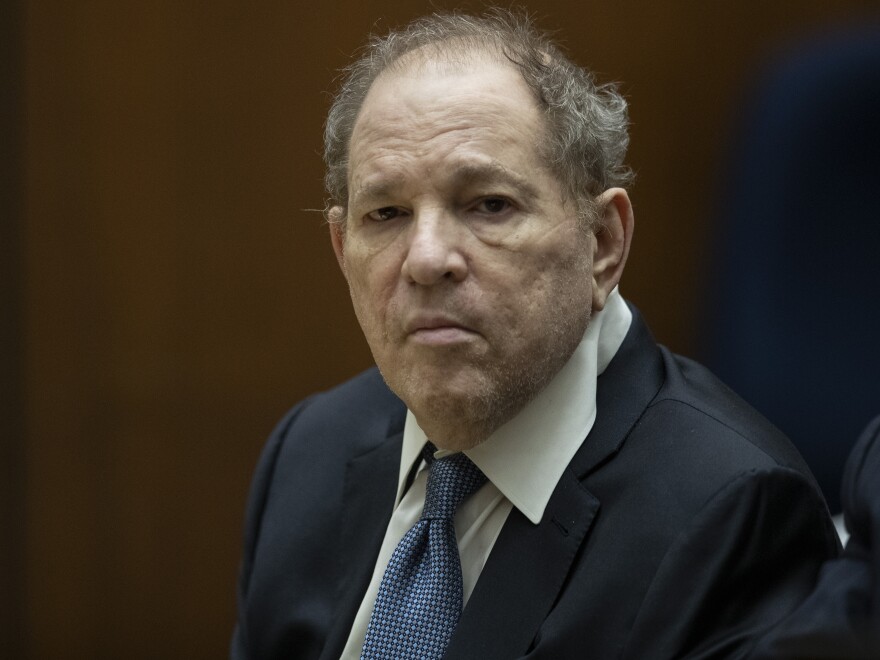Editor's note: This report includes descriptions of sexual assault.
On Thursday morning, the highest court in New York state overturned the 2020 felony sex crime conviction of former movie mogul Harvey Weinstein, and ordered a new trial. Weinstein has been serving a 23-year sentence in New York on the basis of that conviction. The Manhattan district attorney's office told NPR it intends to retry the case.
The New York State Court of Appeals found in a 4-3 decision that Weinstein had not received a fair trial, in part because the trial judge allowed testimony from women whose allegations were not part of that case. (In all, more than 100 women made public allegations against Weinstein.)
On behalf of the appeals court majority, Judge Jenny Rivera wrote in part in the ruling: "We conclude that the trial court erroneously admitted testimony of uncharged, alleged prior sexual acts against persons other than the complainants of the underlying crimes because that testimony served no material non-propensity purpose... The only evidence against defendent [Weinstein] was the complainants' testimony, and the result of the court's rulings ... was to bolster their credibility and diminish defendant's character before the jury."
Those women testified in court as "Molineux witnesses" or "prior bad act witnesses" — which has been allowed in New York in certain situations going back to 1900. Critics and legal experts say that application of the "Molineux Rule" can be highly subjective, and leaves verdicts more open to challenges.
In a written statement to NPR Thursday, attorney Douglas Wigdor, who has represented eight alleged Harvey Weinstein victims, including two of the Molineux witnesses in the New York criminal trial, said: "Today's decision is a major step back in holding those accountable for acts of sexual violence. Courts routinely admit evidence of other uncharged acts where they assist juries in understanding issues concerning the intent, modus operandi or scheme of the defendant. The jury was instructed on the relevance of this testimony and overturning the verdict is tragic in that it will require the victims to endure yet another trial."
It will now be up to the Manhattan district attorney, Alvin Bragg Jr., to launch a new trial against Weinstein. Bragg is currently involved in another very high-profile case: the New York trial of former president Donald Trump, who has been charged with 34 felony counts of falsifying business records in the first degree. A spokesperson for the DA's office told NPR Thursday in a written statement: "We will do everything in our power to retry this case, and remain steadfast in our commitment to survivors of sexual assault."
Despite the New York court's decision, another conviction against Weinstein stands for now. In Feb. 2023, a judge in Los Angeles sentenced Weinstein to a 16-year prison term on a separate conviction of rape and sexual assault. That sentence is to be served consecutively after the New York prison term. As of Thursday morning, Weinstein was being held in upstate New York, at the Mohawk Correctional Facility.
Copyright 2025 NPR



